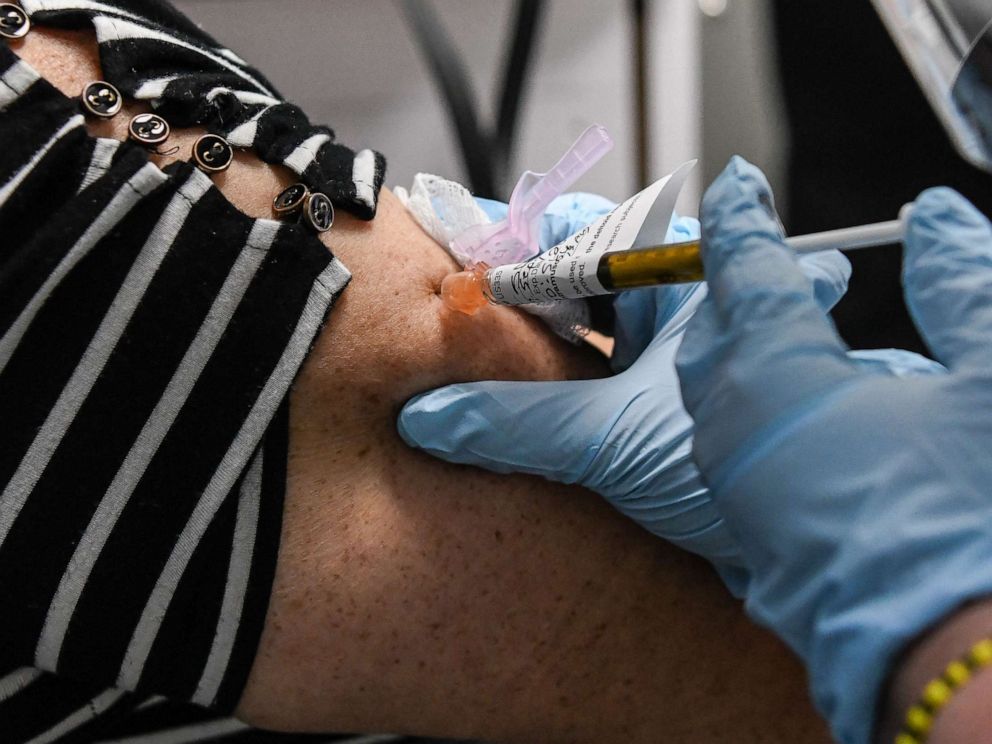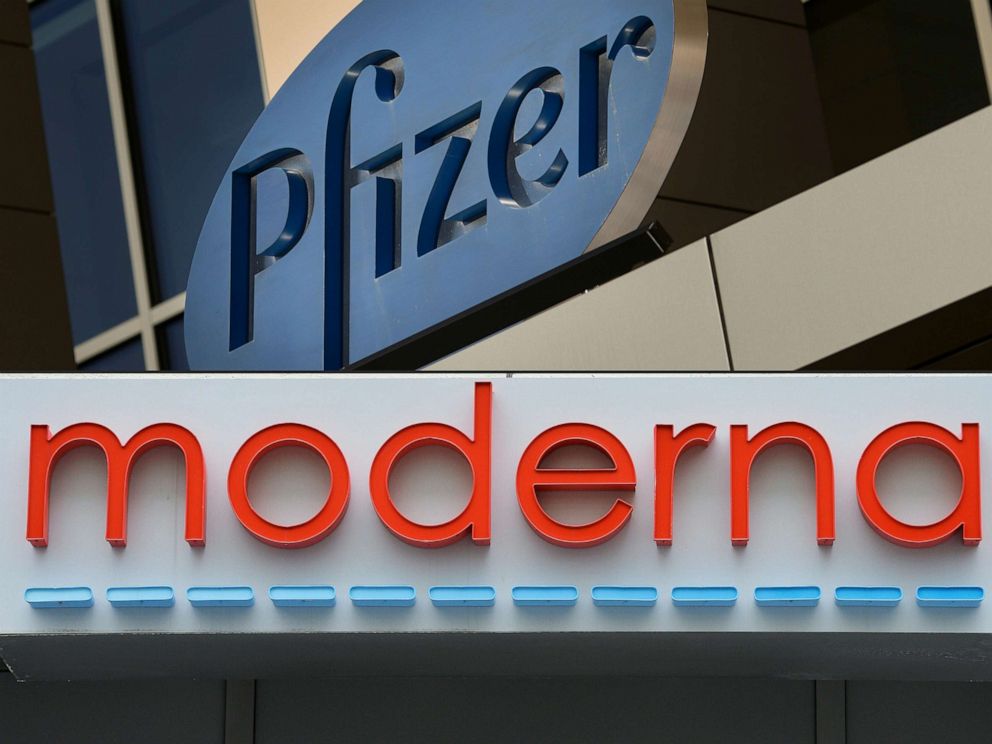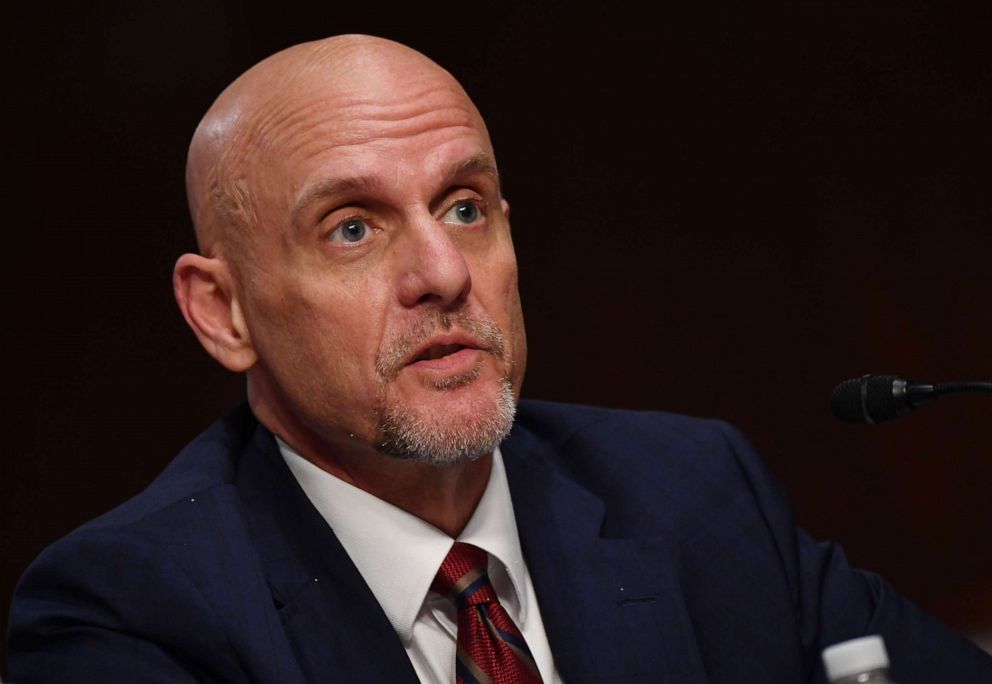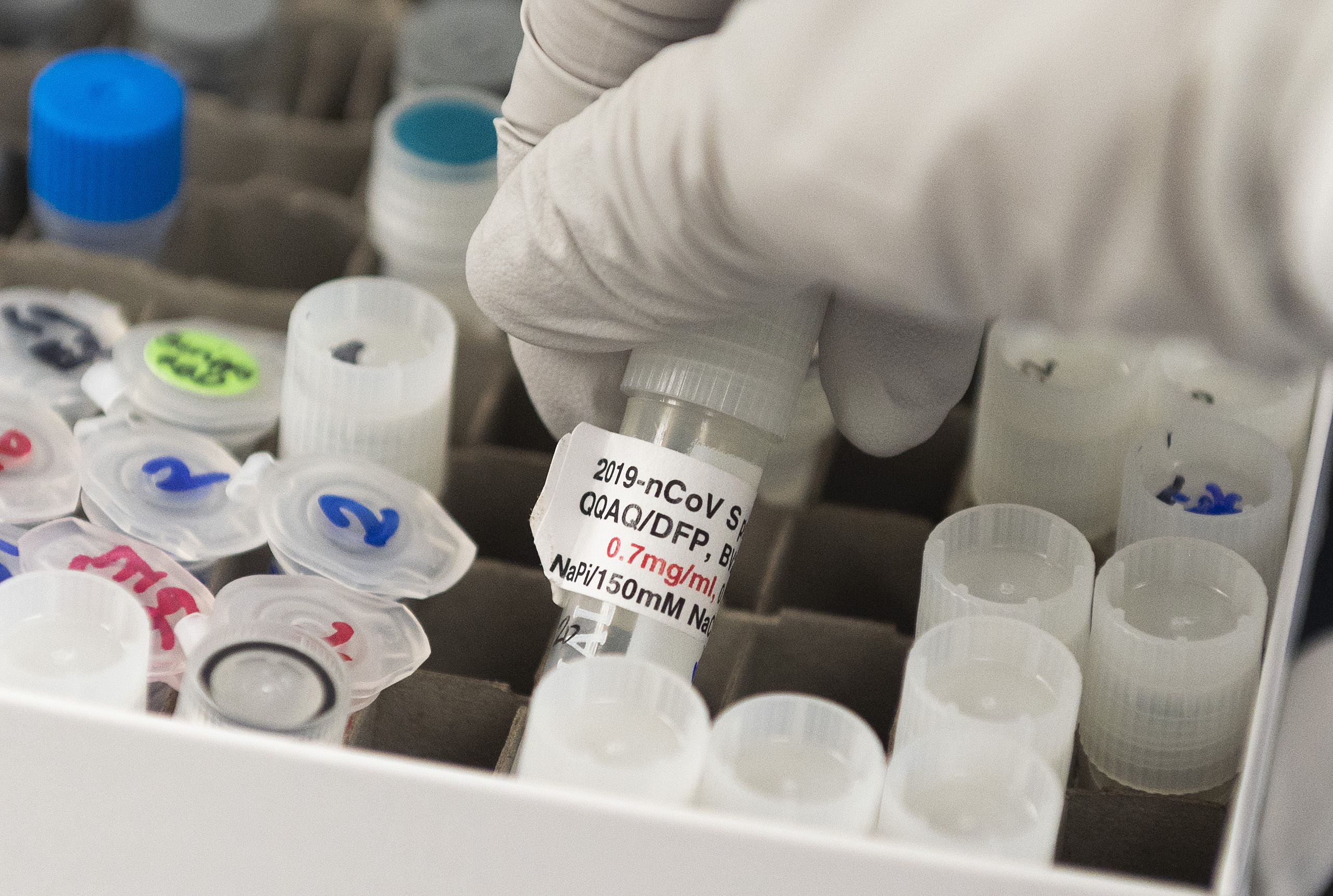Coronavirus vaccine: How the approval process works
There are many questions regarding the approval of a potential COVID-19 vaccine.
There is much uneasiness and many questions about a potential COVID-19 vaccine, among them the unprecedented speed of its development and worries about a rushed approval in a highly politicized atmosphere. Recent comments by vaccine manufacturers about data being ready as soon as October are only bringing those questions into greater light.
Ultimately, the pace of the ongoing COVID-19 vaccine trials won't be determined by politicians or public health experts. Instead, the pace will be primarily driven by the pandemic itself, and how many volunteers become infected in the coming weeks. Once the number of infections reaches a certain threshold, data will be vetted by the Food and Drug Administration, which will make a final determination about whether the vaccine is safe and effective enough to merit widespread use.
Though the timing of a vaccine, set against the backdrop of an election season, is generating speculation that politics is corrupting the process, vaccine specialists interviewed by ABC News said that so far the trials are proceeding in a proper way.
Pfizer CEO Albert Bourla has repeatedly stated that final-phase trials of the company's COVID-19 vaccine candidate are progressing well, and that it is possible the pharmaceutical company will have enough initial data to determine the safety and effectiveness of the vaccine by the end of October. If the results are positive, the company will submit the data to the Food and Drug Administration in an effort to authorize vaccinations as soon as possible.
"We expect by the end of October to have enough [data] to say whether or not the [vaccine] works or not," Bourla said during a digital event organized by the International Federation of Pharmaceutical Manufacturers & Associations last week. "If we have enough events, we may be able to say if the product is safe and effective, and submit immediately for approval."
However, submitting data does not signify that the vaccine will be ready for distribution, nor does it mean Americans will be immediately inoculated.
"The idea that a vaccine is going to be in somebody's arm by the end of October beginning of November, I consider ridiculous," Arthur Caplan, professor of bioethics and the founding head of New York University School of Medicine's Division of Medical Ethics, told ABC News. "What we are watching here is a fight on how to get the vaccine to most Americans by the end of October. ... It can't happen."

The vaccine development is usually a three-phase process, one that often takes years. A small number of people receive the vaccine candidate during the first phase, with a subsequent larger cohort during the second phase.
The pivotal phase 3 trials are designed to evaluate efficacy -- if the vaccine truly protects against the infection -- and its safety.
Pfizer, Moderna and other top vaccine makers are seeking to enroll 30,000 volunteers for their phase 3 trials. Pfizer currently has 25,000 people enrolled in its late-phase trial, however, Moderna recently announced it would slow enrollment in order to ensure diversity in their trial.
Phase 3 is critical for the approval to market for the vaccine candidate, as the effects of the vaccine's final formulation are assessed on the thousands of people inoculated.
"If more people in the placebo group are infected and/or get severe disease, then the vaccine is considered effective," Dr. Paul Goepfert, M.D., professor of medicine and microbiology at the University of Alabama, and director of the Alabama Vaccine Research Clinic, told ABC News, with the "end point" being the reductions in infection and/or reductions in severe cases for those who get infected despite the vaccine.
The authorization of a vaccine by the FDA will depend on how quickly 150 cases of the infection occur.
Dr. Noubar Afeyan, co-founder and chairman of Moderna Therapeutics, said in an interview with "Good Morning America" in July that the 150 infections will help "to statistically be able to compare the placebo ... and declare whether the vaccine" provides adequate protection.

If successful, the group receiving the vaccine should have a disproportionate lower portion of the cases than those who did not get the vaccine. Companies will then be able to submit their data to the FDA, and in turn, demonstrate if their findings meet the safety and efficacy criteria to be authorized for use.
In June, the FDA said that a coronavirus vaccine would have to protect at least 50% of vaccinated people to be considered for emergency authorization or full approval.
But first, data from the ongoing trials is periodically evaluated by the Data and Safety Monitoring Board, an independent group of experts set up by the National Institute of Health. This group has the authority to end the trials early if the results are overwhelmingly positive or negative.
In a phone briefing with reporters last week, Paul Mango, deputy chief of staff for policy at the Department of Health Human Services, said, "We have no insight into the data until the DSMB says we can look at it. They can come back and say, 'This is not a good vaccine.' They could come back before we even have 30,000 folks enrolled and say, 'We have enough. This looks great. Pass it on to the [FDA].'"
If the phase 3 data shows efficacy and safety, the manufacturer of the vaccine can submit an application to the FDA to license for an Emergency Use Authorization or a Biologics License Application for licensure (approval) to FDA.
The data is then reviewed by the FDA's Vaccines and Related Biological Products Advisory Committee, consisting of 15 members, most of whom are infectious disease specialists at universities and research centers.
The advisory committee's recommendation is subsequently forwarded to the FDA's Center for Biologics Evaluation and Research, and then to FDA Commissioner Dr. Stephen Hahn.
Hahn has pledged that the FDA will rely on data and science for approval of a vaccine. "I can promise you that when the data are available, FDA will review them, using its established rigorous and deliberative scientific process," he told the Journal of the American Medical Association last month.

However, President Donald Trump has been promising a rapid timeline for the vaccine, one potentially available by Election Day.
Health experts and politicians have expressed concerns that Hahn, succumbing to political pressure, would prematurely authorize a vaccine.
Because we are in the midst of a pandemic, it is possible that the FDA might make the vaccine available on an emergency basis rather than issue a full approval. This alternative regulatory pathway, called Emergency Use Authorization, has been used once before for a vaccine, in response to the anthrax scare at the turn of the century.
An EUA would be faster than the traditional vaccine approval process, but the FDA says it would still hinge on data that shows the vaccine is safe and effective. And because an EUA is more limited than full approval, drug makers will be expected to submit the vaccine for full approval to ensure a smooth rollout and widespread access for all Americans.
In a statement to ABC News, an FDA spokesperson said, "Emergency Use Authorization can be issued to facilitate the availability of an unapproved product only after several statutory requirements are met. Among these requirements is a determination by the FDA that the known and potential benefits of an unapproved product, when used to diagnose, prevent, or treat a serious or life-threatening disease or condition, outweigh the known and potential risks of the unapproved product."
Given the increasing concern over the politicization of the vaccine process, nine biopharmaceutical companies have taken the unprecedented step of signing a pledge to uphold "high ethical standards," in seeking authorization and full approval for the COVID-19 vaccine.
However, there are still some major concerns pertaining to the comprehensiveness data of the clinical trials, among them a lack of racial diversity, and the fact that children have not been represented in the COVID-19 vaccine trials.
According to Goepfert, while Pfizer has almost fully enrolled participants into its efficacy studies, other companies have either not started enrolling or are not close to being fully enrolled, which explains why Pfizer thinks it may be able to have data by the end of October. "If Pfizer vaccinated a population at high enough risk and the rates of infection start to rise like they might this fall, then they might have an answer by then."

During an interview last week with Kaiser Health News, Dr. Anthony Fauci, director of the National Institute of Allergy and Infectious Diseases, said he was cautiously optimistic that a vaccine could indeed be available earlier than anticipated if the data from the clinical trials demonstrate overwhelmingly positive results.
The Data and Safety Monitoring Board could determine that "the data is so good right now that you can say it's safe and effective," according to Fauci.
In such an instance, he said, the researchers would have "a moral obligation" to end the trial early and make the active vaccine available to all enrolled in the study.
In fact, according to Caplan, if a vaccine is found to be effective, we have an "ethical duty to both unblind the study, and tell people if they're in the placebo group. Even though it might destroy an ongoing study, you still have the right to know all your options."
However, said Fauci, "If you are making a decision about the vaccine, you'd better be sure you have very good evidence that it is both safe and effective."
ABC News' Sony Salzman contributed to this report.


